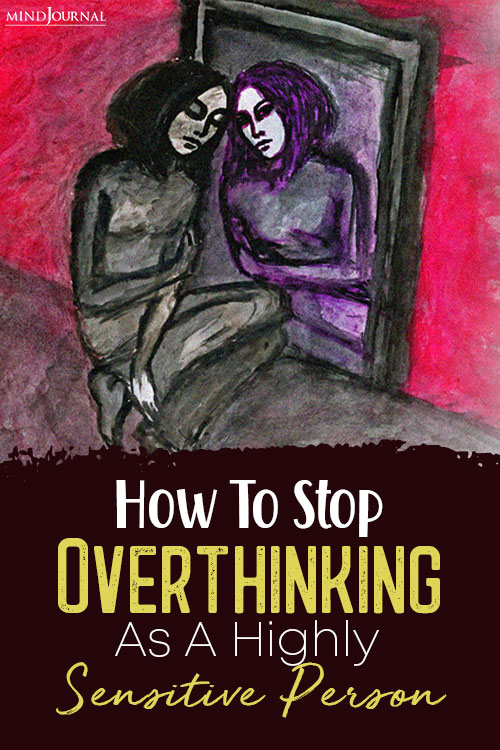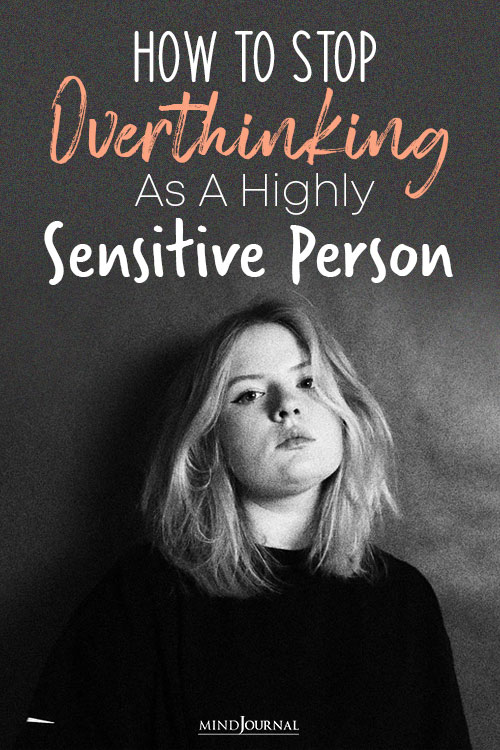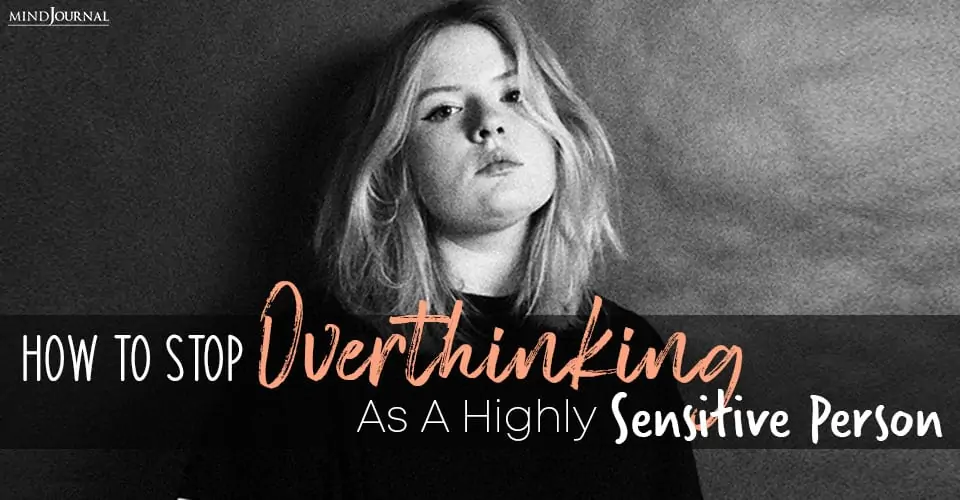Overthinking and being a Highly Sensitive Person often go hand in hand. Thinking deeply about things is not always bad, but when a Highly Sensitive Person keeps overthinking about even the smallest things, then it’s a sign that they need to put a stop to it.
As a Highly Sensitive Person, we know that our depth of processing is more advanced than that of other people. What this means is we think deeply. We process a multitude of stimuli around us like sounds, smells, colors, and the energies of other people. The ability to absorb things and examine them deeply could result in worry, stress, and overthinking.
Since thinking deeply does not equal overthinking it is a stepping stone towards it if you are not aware of your own power.
Most HSPs tend to have a high level of empathy. They tend to worry about others and go on the verge of having people-pleasing tendencies. HSPs are also inclined to be perfectionists. We never want to make “bad” decisions. We also tend to overthink which decision to make in fear of making the wrong one.
One of the hardest things as a Highly Sensitive Person is that we were often not understood growing up. We had no one to tell us that what we were feeling and experiencing inside was normal. We had no one to tell us that we were highly sensitive. Instead of feeling connected and equal we often felt different and that something was wrong with us.
Related: 20 Things You Do Differently Because You’re A Highly Sensitive Person
How The HSP Brain Works
Understanding how the brain of an HSP works is essential to understand why you tend to overthink. It will also begin to put the puzzle together on why you are inclined to have anxiety.
The Limbic System is the major part of the brain which controls your emotions, memory, and stimulation. Within the limbic system, there are many subparts: the thalamus, cerebrum, hypothalamus, and amygdala.
1. The Thalamus
The Thalamus takes in information from our senses like smell, sight, and relays that information to the cerebrum.
2. The Cerebrum
The Cerebrum will then think about the information that is coming in and tell your body what to do.
For example, if you smelt smoke and saw a fire that information would come from the thalamus and it would talk to the cerebrum. The cerebrum would then talk to the Amygdala which would give your body the fight or flight response, but it is the cerebrum that would tell your body to run.
3. The Hypothalamus
The Hypothalamus is another component in the limbic system and it sends messengers throughout your body called hormones. The primary job of this part of your brain is to create a hormonal balance inside your body. This part maintains sleep cycles, heart rate, blood pressure, body temperature, energy levels, appetite, etc.
4. The Amygdala
The last element of the limbic system is the Amygdala. The amygdala is responsible for the processing of our emotions such as anger, fear, sadness, happiness, aggression, etc. The amygdala collects your emotions and links them to an event. It then stores a memory of that event in your brain based on the emotions you had during that event. Here is where your trauma lives. Your sex drive also lives in the amygdala.
These parts of your brain are simply described as the emotional side of your brain. You also have a logical or cognitive side. With an HSP we activate the limbic or emotional side more than the logical side. Since our bodies are wired to have more sensitive nervous systems and we have an overactive amygdala this will always create a fight or flight response in our nervous system.
When we live mostly in our emotions it can cause us to have a lot of irrational thinking vs becoming logical to help us through our uncomfortable thoughts. Since we process life more intensely, we are always taking in stimuli and processing them deeply. When this happens, we are living in our emotional brain.
Our minds will continue to overthink and create anxiety in our bodies because we have not begun to,
(1) understand how our brains work and
(2) gain the knowledge to help us learn how to control this trait.

How To Train Your Brain
Self-awareness is key to beginning to implement this practice. If you are not aware that your mind has begun to wander into overthinking and worry, then you can never stop it. At first, this may be tricky because we are used to running on autopilot that we never stop to think about what we are thinking about.
Instead, we continue to live unconscious lives reliving the same old habits repeatedly that will always give us the same results.
The minute you can catch yourself in a habitual state of overthinking you must realize that this is your overactive brain taking over. Just acknowledging you have an overactive brain and that there is nothing wrong with you will help to soothe yourself vs overthinking that you are overthinking.
Related: 11 Ways To Put An End To Overthinking
Next is to remove yourself from the thought because the thought is not coming from you, it is coming from a multitude of places, such as programming, an old event, trauma, fear, etc. Once you can practice the art of detaching then you can begin tapping into more logical thinking.
Some people have a hard time accessing logical thinking and this is where self-parenting comes into play.
The ability to think deeply, process a lot of subtle stimuli, and be an empath will always cause an HSP to feel emotionally drained. That is why self-care is so important for someone who is highly sensitive.
Written By Stephanie Lyn Originally Appeared On Stephanie Lyn Life Coaching
For a Highly Sensitive Person to stop overthinking means that they need to put themselves first sometimes, and take proper care of themselves. Thinking deeply is not a bad thing by any means, but constantly overthinking about every tiny thing is just going to stress you out more. Self-care is one of the best things for a Highly Sensitive Person and something that can really help stop their habit of thinking constantly.







Leave a Reply
You must be logged in to post a comment.